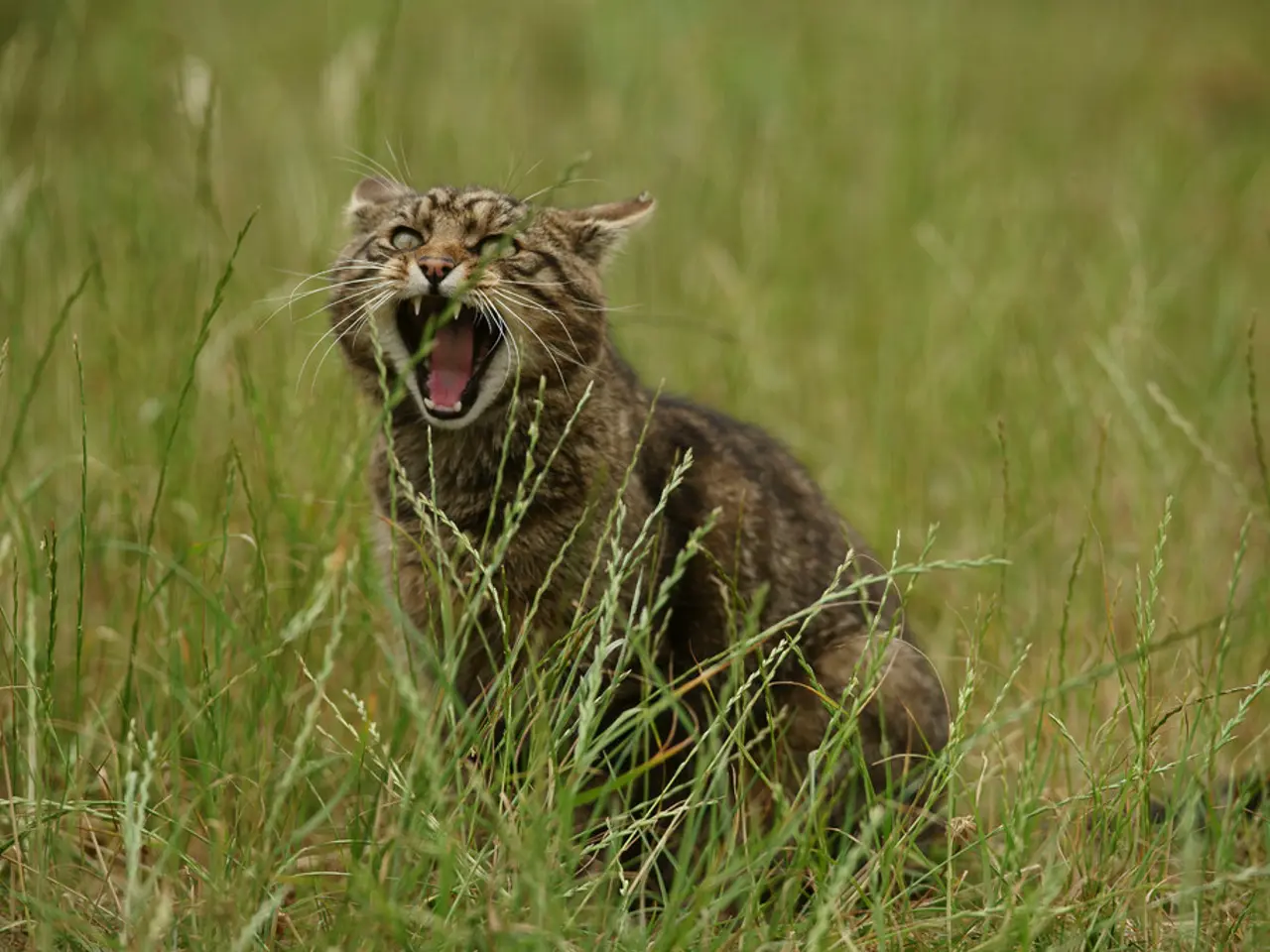Is it Harmful for Cats to Consume Kalanchoe?
Pets, especially cats, can be curious creatures, often tempted to nibble on plants around the house. However, many common plants are dangerous or toxic to cats, and it's essential to be aware of these potential hazards.
Dangerous Plants for Cats
Some of the most common toxic plants for cats include:
- Kalanchoe: This popular indoor plant contains cardiac glycosides, which can cause vomiting, diarrhea, and more serious effects such as heart rhythm abnormalities if ingested by cats.
- Lilies (Lilium species): These beautiful flowers are extremely toxic to cats. Even small amounts can cause acute kidney failure and death.
- Aloe Vera: The gel from this plant contains saponins and anthraquinones, which can cause vomiting, lethargy, and diarrhea in cats.
- Amaryllis (Hippeastrum species): The toxic compounds in Amaryllis can cause vomiting, diarrhea, abdominal pain, hypersalivation, and tremors.
- Dracaena species (Corn plant and Snake plant): These plants contain saponins, which can cause vomiting (sometimes bloody), depression, and dilated pupils.
- Dieffenbachia (Dumb cane): This plant's insoluble calcium oxalate crystals can cause oral irritation, swelling, excessive drooling, and difficulty swallowing.
- Azaleas and Rhododendrons: These flowers can cause vomiting, weakness, tremors, and heart problems.
- Hydrangeas, Calla lily, Chrysanthemum, Iris, Daffodils, Hyacinth: These plants can cause varied gastrointestinal and systemic symptoms.
- Sago Palm: This plant is deadly to cats and dogs.
Indoor leafy plants often considered safe may still cause mild symptoms if eaten excessively, so caution is advised even with common houseplants like spider plants.
What to Do If a Cat Ingests a Toxic Plant
- Identify the plant by name.
- Contact a veterinarian immediately.
- Have the ASPCA Poison Control 24-hour hotline available: (888) 426-4435.
Summary of Some Toxic Plants and Effects for Cats
| Plant | Key Toxic Compounds | Symptoms in Cats | |------------------------|-------------------------------|-------------------------------------| | Kalanchoe | Cardiac glycosides (bufadienolides) | Vomiting, diarrhea, heart rhythm disturbances | | Lilies (Lilium spp.) | Unknown (toxicity to kidneys) | Vomiting, lethargy, kidney failure | | Aloe Vera | Saponins, anthraquinones | Vomiting, lethargy, diarrhea | | Amaryllis | Lycorine | Vomiting, abdominal pain, tremors | | Corn Plant (Dracaena) | Saponins | Vomiting, anorexia, dilated pupils | | Dumb Cane (Dieffenbachia) | Insoluble calcium oxalate crystals | Oral irritation, drooling, swelling | | Azaleas, Rhododendrons | Grayanotoxins | Vomiting, tremors, weakness, cardiac effects | | Hydrangea, Calla lily | Various | GI upset, oral irritation | | Sago Palm | Cycasin | Vomiting, liver failure (deadly) |
If you suspect that your cat has ingested a toxic plant, immediate veterinary consultation is essential to prevent serious outcomes. Treatment may include IV fluids, medications to control vomiting, and close monitoring. Symptoms of poisoning can include abdominal pain, gastrointestinal irritation, drooling, vomiting, diarrhea, lethargy, and abnormal heart rhythm. In severe cases, toxicity can lead to liver failure, kidney failure, and heart arrhythmia.
It's best to keep all potentially toxic plants out of a cat's reach, either caged in or in some other place where they cannot access them. If you love plants and have cats, it's important to keep a list of dangerous plants for cats to avoid bringing toxic plants into your home.
- To ensure a safe environment for cats, it's advisable to avoid planting Kalanchoe, Lilies, Aloe Vera, Amaryllis, Corn Plant (Dracaena), Dumb Cane (Dieffenbachia), Azaleas, Rhododendrons, Hydrangea, Calla lily, and Sago Palm in one's house or garden.
- Many popular houseplants, such as spider plants, though generally considered safe, may cause mild symptoms if consumed excessively by cats.
- It's crucial to understand the potential health risks posed by these plants, as ingestion can lead to symptoms like vomiting, diarrhea, heart problems, and even life-threatening conditions such as kidney failure and liver failure.
- In case a cat accidentally ingests a toxic plant, prompt action should be taken: Identify the plant, contact a veterinarian immediately, and have the ASPCA Poison Control 24-hour hotline available at (888) 426-4435.




